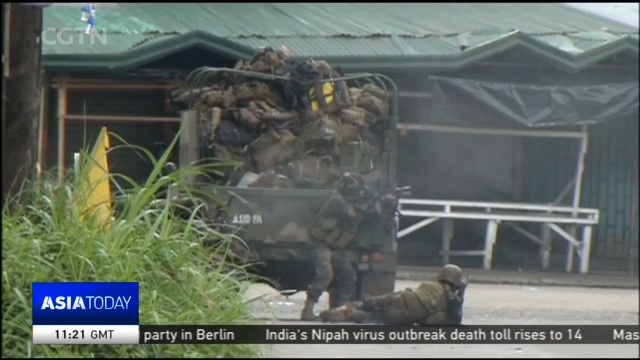
19:55, 28-May-2018
Terrorism in South East Asia: Indonesian attacks show terrorism still a threat
01:50

As ISIL is losing vast swathes of territory in Iraq and Syria, it has actively sought to mobilise support with jihadist groups abroad. The insurgent group has long targeted Southeast Asia, in particular the Philippines and Indonesia. Timothy Ulrich has more.
The recent wave of terrorist attacks in Indonesia and in other South East Asian countries have triggered fears that ISIL is now focusing its efforts abroad, outside the Middle East, where it has lost much of its territory.
In Southeast Asia, the scourge of terrorism has yet to be fully eradicated. In the last two years, there have been at least six major terrorist incidents in the region.
One of the bloodiest was the "Battle of Marawi", in which a coalition of Islamist groups under the ISIL flag laid siege to the town of Marawi in the Philippines. The month-long battle killed hundreds.
At the ASEAN Summit in April, Singapore's Prime Minister Lee Hsien Loong warned that Southeast Asia faced "very real" threats from ISIL.
The October 2002 bombings on the Indonesian resort of Bali catapulted terrorism to the top of the list of security priorities for governments in the region, as security agencies came under threat from groups like Al-Qaeda and Jemaah Islamiah - a terror group that uses violence in an attempt to establish an Islamic caliphate.
Its influence can be seen in Indonesia, Malaysia, the Philippines and Singapore.
In light of these security threats, ASEAN leaders have been ramping up anti-terrorism efforts, enhancing intelligence sharing and disrupting potential attackers' ability to communicate digitally.
However, many experts say the waves of insurgent attacks show that current strategies are not sufficient to safeguard a region characterized by diverse cultures and over six hundred million people.

SITEMAP
Copyright © 2018 CGTN. Beijing ICP prepared NO.16065310-3
Copyright © 2018 CGTN. Beijing ICP prepared NO.16065310-3